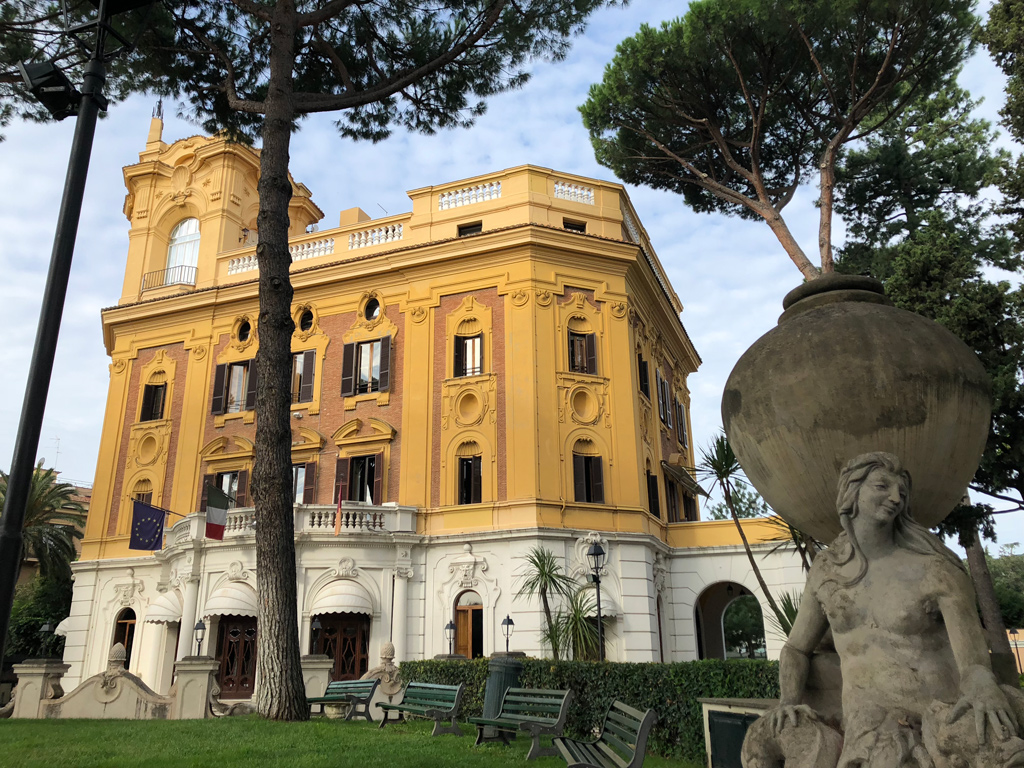Navigating the Ph.D. Journey: A comparison between Italy and Canada From LUISS to Laval
Starting a Ph.D. journey is an important step, yet the experience can vary depending on the geographic or institutional context of such an academic journey

Embarking on a PhD journey is an important step to begin an academic career, offering a path to deep expertise and research contributions. However, this experience can vary significantly depending on the geographic and institutional context where you begin or decide to continue this journey.
 This blog post delves into the main distinctions between pursuing a PhD in Europe and in North America, with a special focus on my experience at LUISS University and Université Laval in Quebec. Particularly, we will explore the unique aspects of the doctoral process in Italy and Canada, emphasizing the content and role of the retrospective and prospective exams, which are pivotal milestones for PhD candidates in North America.
This blog post delves into the main distinctions between pursuing a PhD in Europe and in North America, with a special focus on my experience at LUISS University and Université Laval in Quebec. Particularly, we will explore the unique aspects of the doctoral process in Italy and Canada, emphasizing the content and role of the retrospective and prospective exams, which are pivotal milestones for PhD candidates in North America.
The Italian approach, LUISS University
 In Italy, at LUISS University, where I am pursuing a Ph.D. in Law and Business, the interdisciplinary Ph.D. program is designed to blend theoretical knowledge with practical insights into the legal and regulatory frameworks affecting markets and enterprises. This program is structured to foster a high level of scientific and research autonomy among doctoral students, equipping them with the necessary critical and analytical skills. The curriculum spans various law disciplines, including Private Law, Comparative Private Law, and European Union Law, among others, aiming to prepare students for both theoretical exploration and practical case resolution. In this context, the PhD Programme in Law and Business consists of three academic years. Each year is divided into two semesters. Each semester includes teaching and scientific activities for about 60 CFU, and in any case for a total of 180 CFU to be achieved in the three years. In addition to modules and lectures to follow, during the three-year course, Ph.D. candidates are required to participate in conferences, seminars, conventions, and Call for Papers published by Universities, national and International Research Centres, and Scientific Associations, to illustrate and share the progress of their research with the scientific community.
In Italy, at LUISS University, where I am pursuing a Ph.D. in Law and Business, the interdisciplinary Ph.D. program is designed to blend theoretical knowledge with practical insights into the legal and regulatory frameworks affecting markets and enterprises. This program is structured to foster a high level of scientific and research autonomy among doctoral students, equipping them with the necessary critical and analytical skills. The curriculum spans various law disciplines, including Private Law, Comparative Private Law, and European Union Law, among others, aiming to prepare students for both theoretical exploration and practical case resolution. In this context, the PhD Programme in Law and Business consists of three academic years. Each year is divided into two semesters. Each semester includes teaching and scientific activities for about 60 CFU, and in any case for a total of 180 CFU to be achieved in the three years. In addition to modules and lectures to follow, during the three-year course, Ph.D. candidates are required to participate in conferences, seminars, conventions, and Call for Papers published by Universities, national and International Research Centres, and Scientific Associations, to illustrate and share the progress of their research with the scientific community.
The Canadian method, Laval University
In Canada, at Université Laval, when I am following a Ph.D. program in International Studies that champions interdisciplinarity, the program aims to cultivate a new generation of scholars proficient across multiple disciplines. This is achieved through dual-specialist supervision and thematic seminars led by researchers from diverse fields. The program emphasizes a comprehensive understanding and innovative research methodologies, preparing students for the complexities of global academic inquiries. This program's primary objective is to offer advanced multidisciplinary education on international phenomena. It is important to note that by the end of their program, the student should have contributed autonomously and originally to the advancement of knowledge on international phenomena, especially through the production of a thesis, and be able to describe and put into perspective the issues, theories, and methods in international studies through a multidisciplinary approach. In addition to these, central to the Canadian PhD experience, especially at Université Laval, are two critical examinations: the retrospective (comprehensive) exam and the prospective (proposal defense) exam. These exams are instrumental in assessing the candidate's comprehensive knowledge, understanding, and research potential. This comprehensive exam, conducted after coursework completion, evaluates the student's theoretical, conceptual, and methodological prowess. It is a rigorous assessment designed by a committee from the student's chosen disciplines, in my case Law and Political Science, aiming to ascertain their competence to write a thesis. The process involves a detailed examination, including a written response, of approximately 20 pages, and an oral presentation, with the outcome determining the student's progression to the dissertation phase. The prospective exam involves the defense of the Ph.D. project before a committee. This stage is crucial for outlining the dissertation's scope, methodology, and preliminary bibliography. In this context, the proposal should be approximately 25 pages long and must be submitted to committee members and the program director at least two weeks before the oral presentation. The exam not only assesses the feasibility of the proposed research but also serves as a platform for constructive feedback, guiding the student towards a successful completion of their doctoral thesis.
My Insights from a Dual Ph.D. Journey
 The journey to a Ph.D., whether pursued in Europe or Canada, is an intellectually rigorous and demanding process. The structured approach in Canadian institutions, particularly highlighted by the practices at Université Laval, provides a comprehensive framework that prepares doctoral candidates for the depth and breadth of academic research. This process not only evaluates their knowledge and readiness but also significantly contributes to their development as independent researchers. In contrast to the Canadian model, the European approach, as exemplified by LUISS University, is less focused on examinations, with progress monitored through regular interactions with the supervisor and a doctoral committee, but also with a higher number of courses to follow. The choice, between the “European” and the “Canadian” model, depends on one's preferred learning style, research focus, and career objectives. Regardless of the chosen path, the Ph.D. journey will be transformative, characterized by intellectual growth, challenges, and of course the pursuit of knowledge. In conclusion, I find myself exceptionally fortunate to have embarked on a journey that did not force me to choose but rather allowed me to experience both types of PhD journey. This unique path has been a significant plus in my academic journey, offering me a diverse “menu” of methodologies and perspectives. In this context, the dual examination system at Laval University stands out as a particular advantage in my academic experience. These examinations are not only propelling my thesis work forward but have also provided me with invaluable feedback, contributing to my growth as a PhD candidate. In addition to this, the training received at LUISS, so far, has been instrumental, opening doors to two distinct cultural and academic approaches to research. Today, I can say without doubts that my decision to start my Ph.D. within the GEM-Diamond project was influenced by the possibility of living this experience. This has not only expanded my academic network but has also granted me access to a variety of academic resources and facilities. The journey, so far, has been a testament to the value of multidisciplinary study, underscoring the benefits of integrating diverse academic disciplines and cultures in fostering well-rounded and impactful research.
The journey to a Ph.D., whether pursued in Europe or Canada, is an intellectually rigorous and demanding process. The structured approach in Canadian institutions, particularly highlighted by the practices at Université Laval, provides a comprehensive framework that prepares doctoral candidates for the depth and breadth of academic research. This process not only evaluates their knowledge and readiness but also significantly contributes to their development as independent researchers. In contrast to the Canadian model, the European approach, as exemplified by LUISS University, is less focused on examinations, with progress monitored through regular interactions with the supervisor and a doctoral committee, but also with a higher number of courses to follow. The choice, between the “European” and the “Canadian” model, depends on one's preferred learning style, research focus, and career objectives. Regardless of the chosen path, the Ph.D. journey will be transformative, characterized by intellectual growth, challenges, and of course the pursuit of knowledge. In conclusion, I find myself exceptionally fortunate to have embarked on a journey that did not force me to choose but rather allowed me to experience both types of PhD journey. This unique path has been a significant plus in my academic journey, offering me a diverse “menu” of methodologies and perspectives. In this context, the dual examination system at Laval University stands out as a particular advantage in my academic experience. These examinations are not only propelling my thesis work forward but have also provided me with invaluable feedback, contributing to my growth as a PhD candidate. In addition to this, the training received at LUISS, so far, has been instrumental, opening doors to two distinct cultural and academic approaches to research. Today, I can say without doubts that my decision to start my Ph.D. within the GEM-Diamond project was influenced by the possibility of living this experience. This has not only expanded my academic network but has also granted me access to a variety of academic resources and facilities. The journey, so far, has been a testament to the value of multidisciplinary study, underscoring the benefits of integrating diverse academic disciplines and cultures in fostering well-rounded and impactful research.
